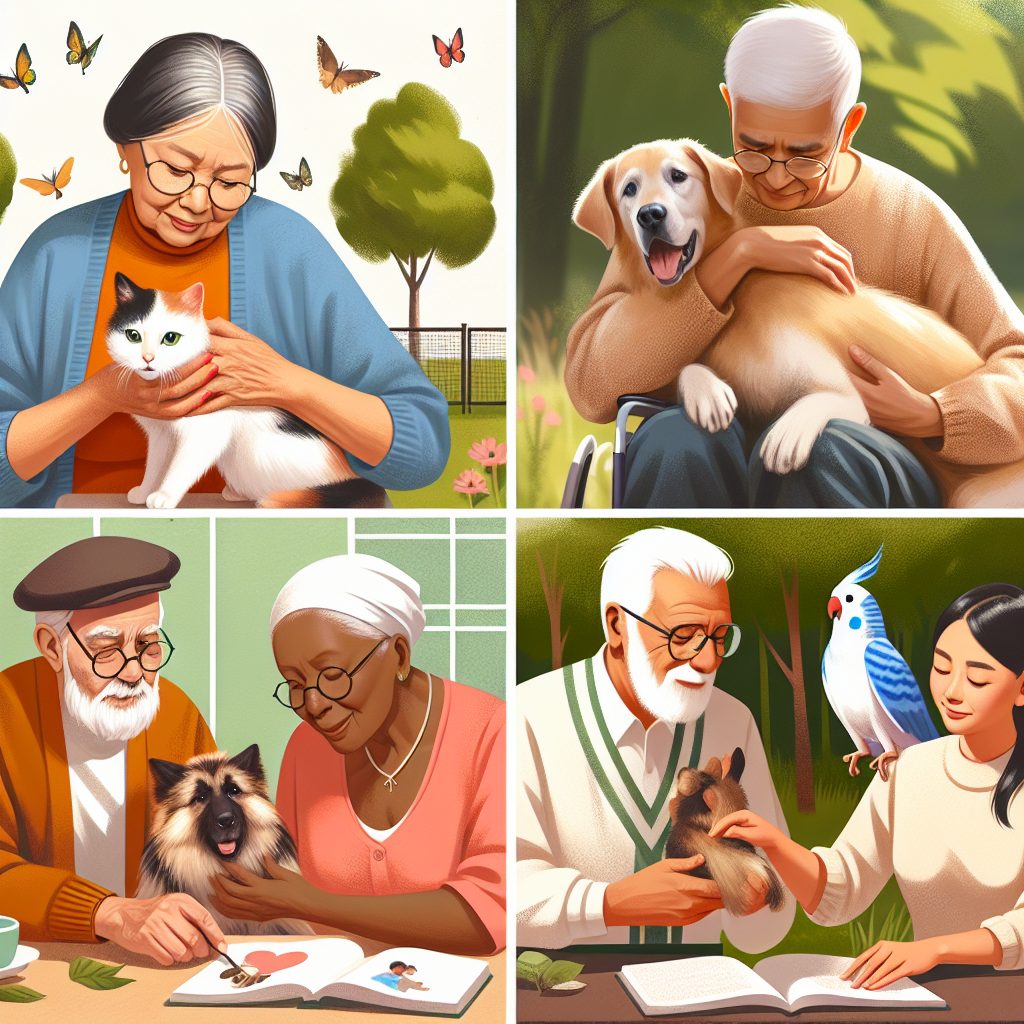Pets Promote Health and Companionship for Aging Seniors
As the global population ages, the quest for maintaining health and well-being in later years becomes increasingly important. One often overlooked yet highly effective means of promoting health and companionship among seniors is pet ownership. Pets offer a unique blend of physical, emotional, and social benefits that can significantly enhance the quality of life for older adults.
The Physical Health Benefits of Pet Ownership
Owning a pet, particularly a dog, can encourage seniors to engage in regular physical activity. Walking a dog, for instance, provides a low-impact form of exercise that can help maintain cardiovascular health, improve joint mobility, and enhance overall fitness levels.
- A study published in the Journal of Physical Activity and Health found that dog owners are 34% more likely to achieve the recommended levels of physical activity compared to non-dog owners.
- Regular physical activity can help reduce the risk of chronic diseases such as heart disease, diabetes, and obesity, which are prevalent among older adults.
Moreover, the act of caring for a pet can also improve fine motor skills and coordination, as seniors engage in activities such as feeding, grooming, and playing with their pets.
Emotional and Psychological Benefits
Pets provide unconditional love and companionship, which can be particularly beneficial for seniors who may experience loneliness or social isolation. The presence of a pet can offer emotional support and a sense of purpose, which are crucial for mental well-being.
- A study by the American Psychological Association found that pet owners report lower levels of depression and anxiety compared to non-pet owners.
- Interacting with pets can increase the production of serotonin and dopamine, neurotransmitters that promote feelings of happiness and relaxation.
Furthermore, pets can serve as a source of comfort and stability, helping seniors cope with the loss of loved ones or other life changes.
Social Benefits and Opportunities for Interaction
Pets can also act as social catalysts, encouraging interactions with other people. Walking a dog, for example, often leads to conversations with fellow pet owners or neighbors, fostering a sense of community and belonging.
- Pet ownership can help seniors build new friendships and expand their social networks, which is vital for maintaining cognitive health and reducing the risk of dementia.
- Participating in pet-related activities, such as training classes or pet clubs, can provide additional opportunities for social engagement.
These interactions can help combat feelings of loneliness and isolation, which are common among older adults living alone.
Case Studies and Real-Life Examples
Consider the case of Mary, a 75-year-old widow who adopted a small dog from a local shelter. Mary reports that her dog has not only provided her with companionship but has also motivated her to take daily walks, leading to improved physical health. Additionally, Mary has made new friends in her neighborhood through her regular dog-walking routine.
Similarly, a senior living community in Florida introduced a pet therapy program, where residents could interact with therapy animals. The program resulted in noticeable improvements in residents’ mood and social interactions, highlighting the profound impact pets can have on seniors’ lives.
Conclusion
In conclusion, pets offer a myriad of benefits for aging seniors, from promoting physical health to providing emotional support and enhancing social interactions. As the population continues to age, encouraging pet ownership among seniors can be a valuable strategy for improving their overall quality of life. By fostering a sense of companionship and purpose, pets can help seniors lead healthier, happier, and more fulfilling lives.



